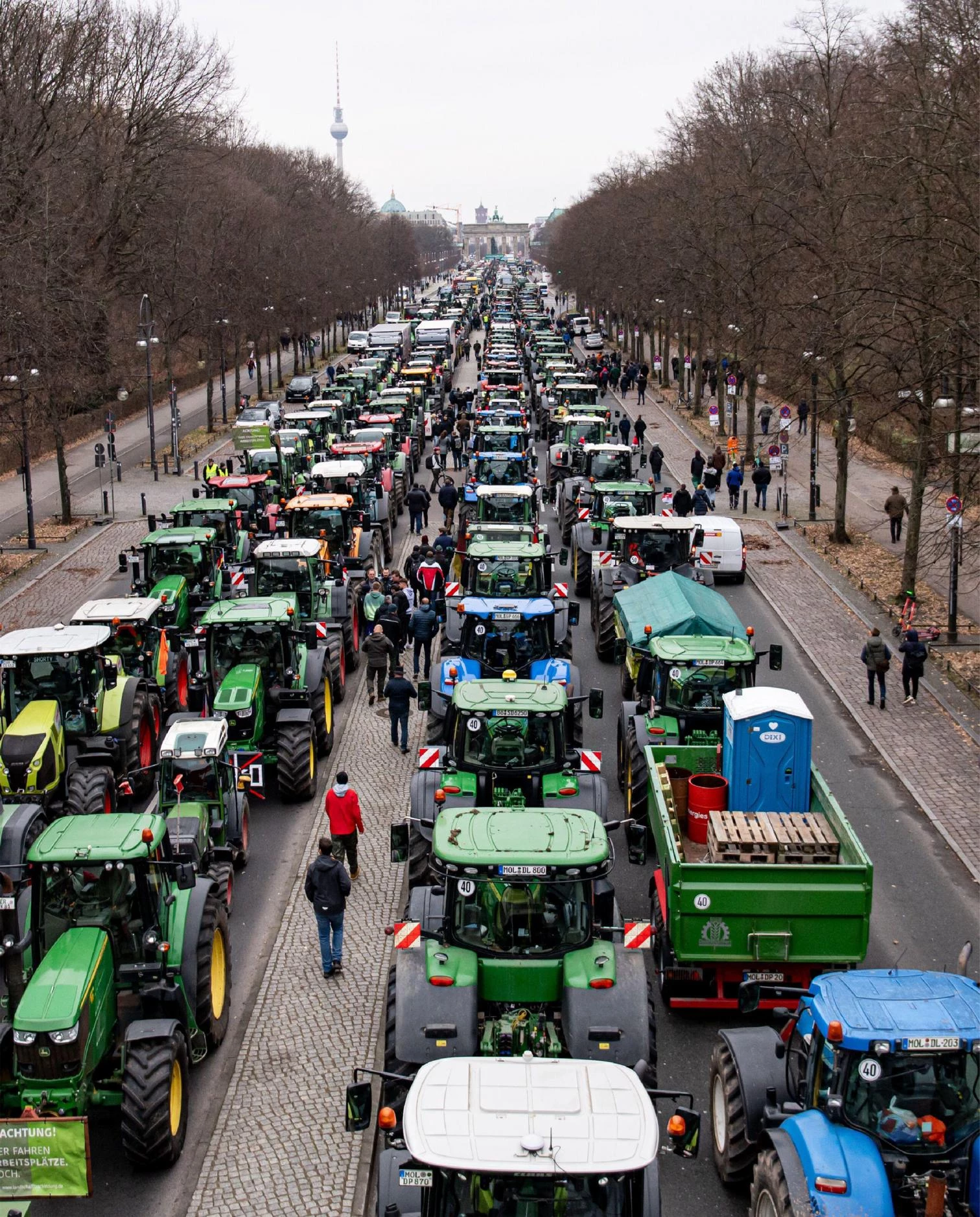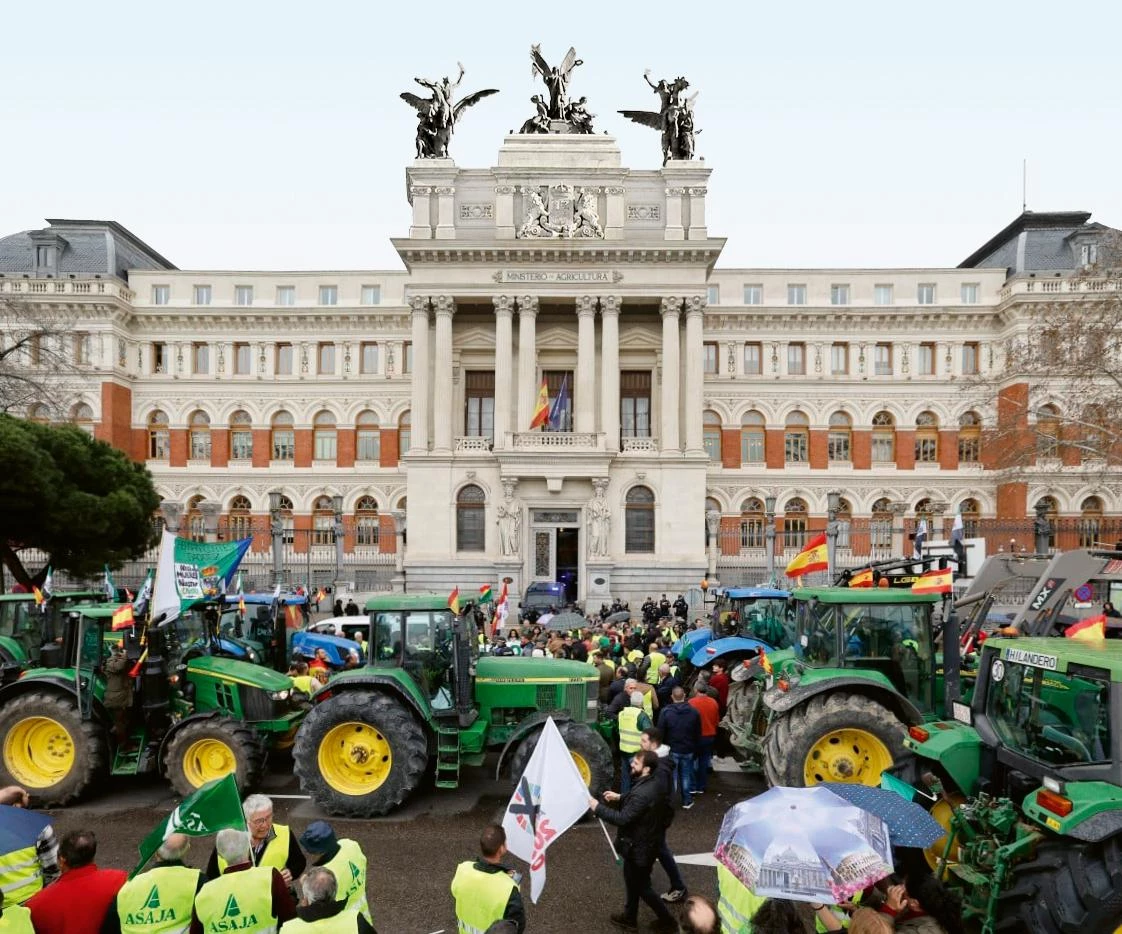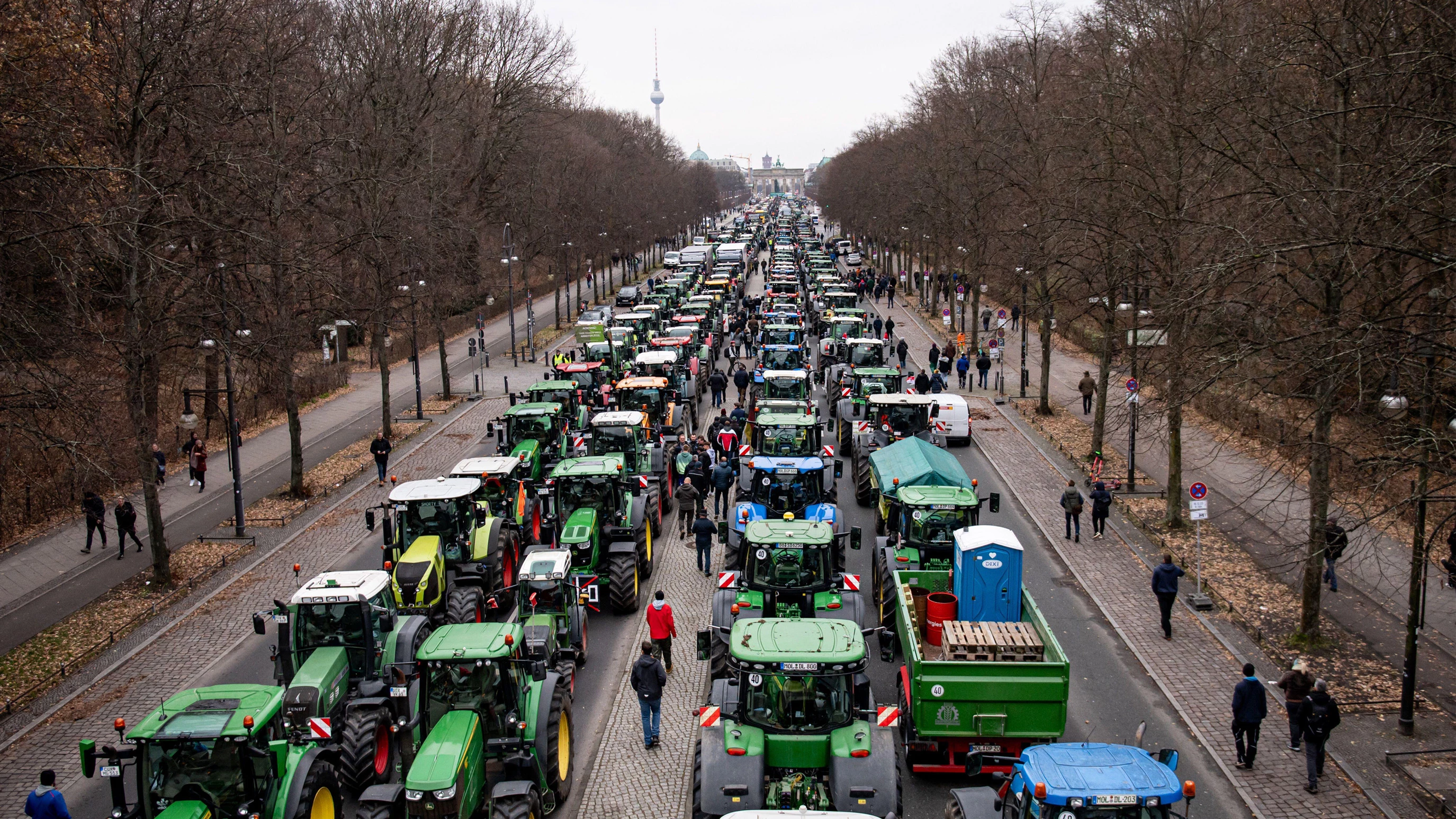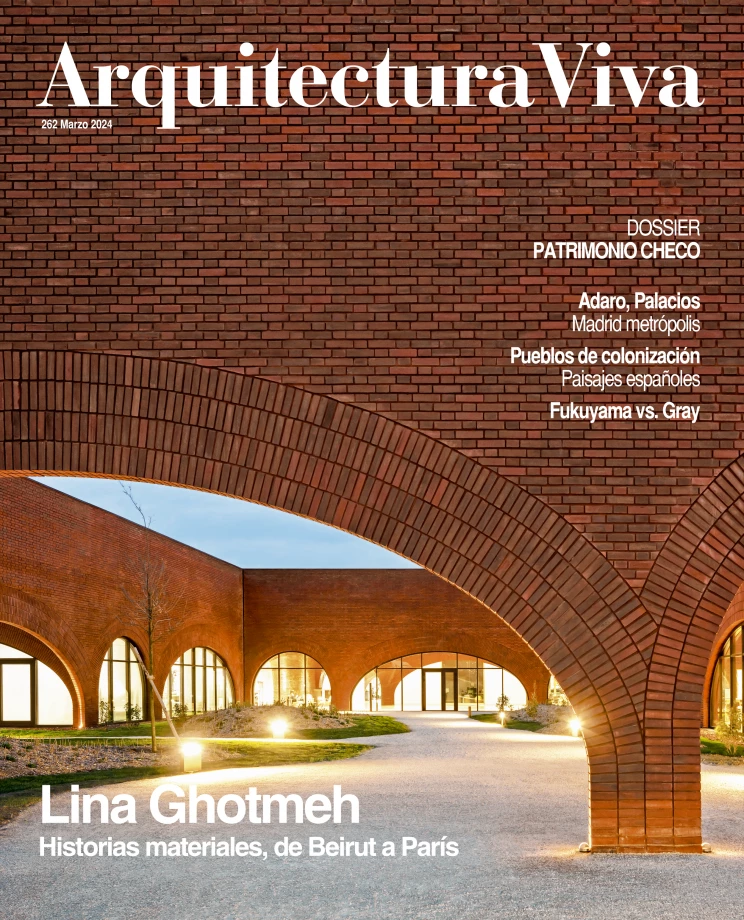
Farmers' protest in front of the Brandenburg Gate in Berlin © Fabian Sommer / Alamy
In the cold Berlin morning, the tractors on the avenue leading to Brandenburg Gate line up with the discipline of an invading army. Norman Mailer wrote The Armies of the Night moved by the 1967 March on the Pentagon, and today’s armies of dawn that have stormed a number of European cities are still waiting for someone to tell their history as a novel, and their novel as history. The protests of farmers, which after sparking up in Germany and France have spread to Spain and good part of the continent, have two contrasting narratives: the urban world, which is warm towards country folk, does not however understand how such a small sector of the national economies, generously supported by by the Common Agricultural Policy, can suffer such frustration and cause so many disturbances; the rural context, which feels abandoned and misunderstood, thinks that its work as food producers does not receive due credit, regrets being considered an enemy of the environment, and suffocates under the weight of unfair competition and bureaucracy.
The globalization of production and a very efficient distribution resulted in cheap and abundant food, driving away the millennarian specter of scarcity and shortage, and turning Malthus into a bad dream that only African famines made present in the bad conscience of prosperous Europeans. All this changed with the fracture of the logistical networks during the pandemic and with the geopolitical polarization which has led to efforts to locate supplies in near geographies or in ideologically close countries. The rising food prices, which have not been adequately reflected in the income obtained by producers, happen in a context of inflation that affects fuel and fertilizers, opening up a vicious circle that spells ruin for many farms, further constrained in our continent by demanding environmental regulations that do not seem to be applied with the same rigor in all European countries, not to mention those outside the area, evidencing with this that Brussels has placed ecology and landscape way before food production.
Lines of tractors are entering the cities now using the window of opportunity that has opened in the months before the June European election, in which the social-democratic and conservative parties fear the rise of the nationalist far right, so influential in Hungary, Italy, France, Germany, the Netherlands, or Poland: a group of countries, along with the United States and Israel, in which The Economist finds the right has gone GAGA (Global Anti-Globalist Alliance). The protest of crop and livestock farmers has already urged correcting the pace of the green transition, but the 17 objectives and the 169 goals of the 2030 Agenda for Sustainable Development are still an environmental framework as devoutly invoked as hardly reachable. Reconciling the interests of ecology with those of food is not something that can be solved in terms of the old conflict between town and country, but perhaps the current episodes are only the prologue of something larger: from Berlin to Madrid, those armies of dawn call us to join a fight for nurture and nature that deserves a common narrative.

Protest in front of the Palacio de Fomento in Madrid.







